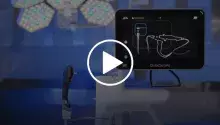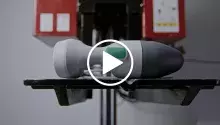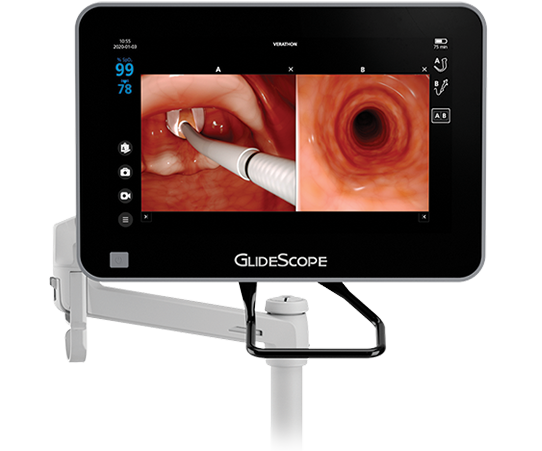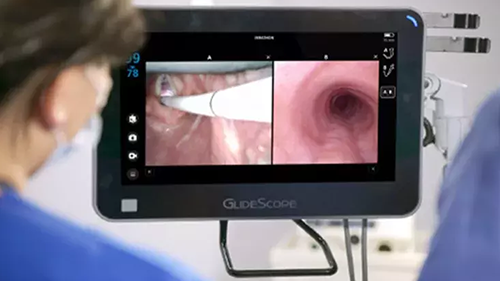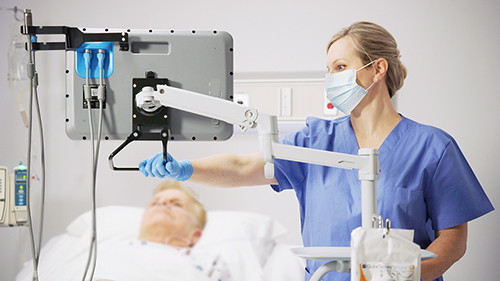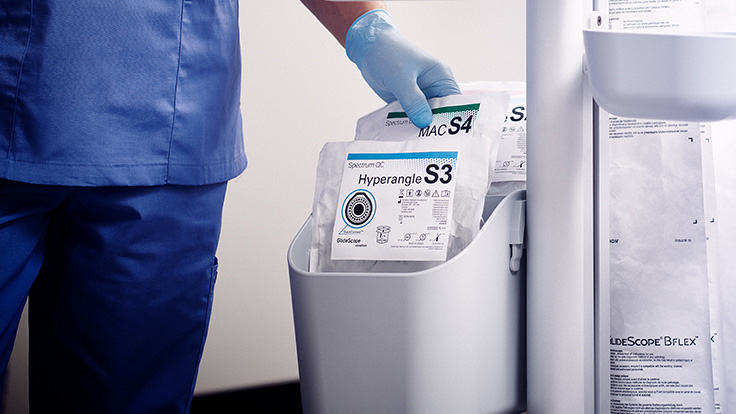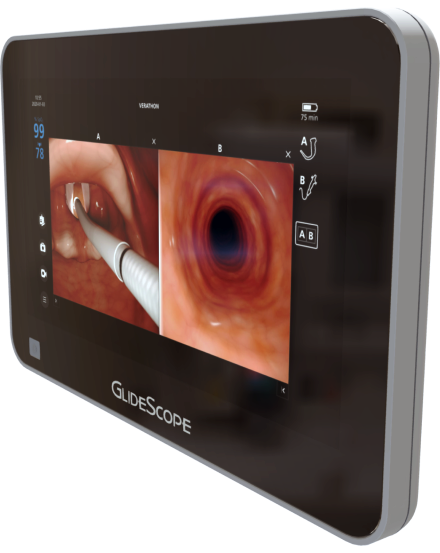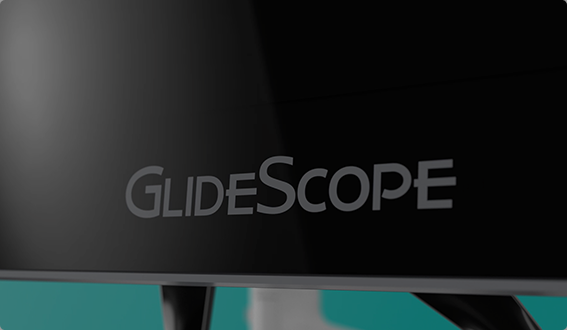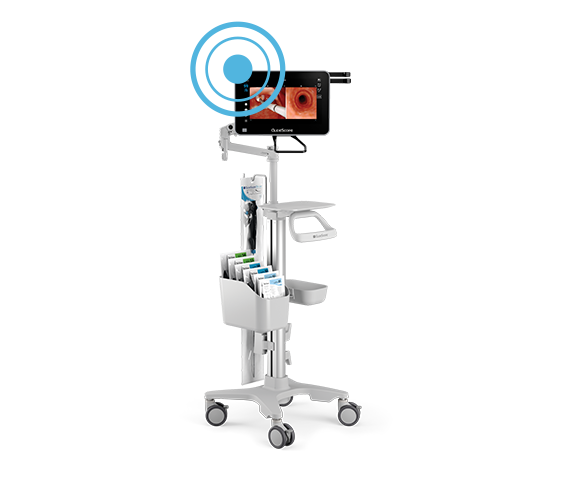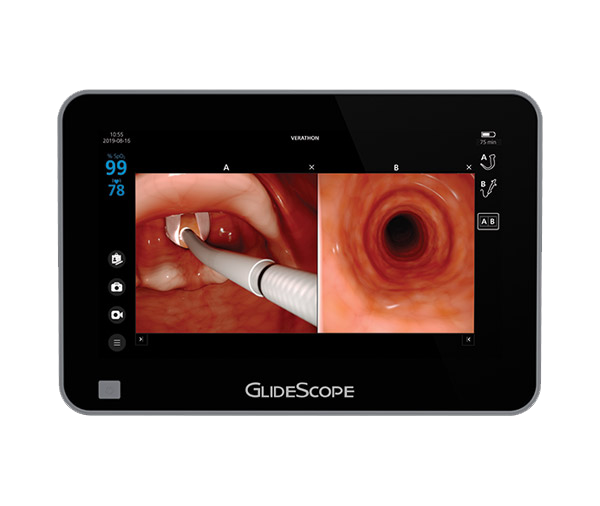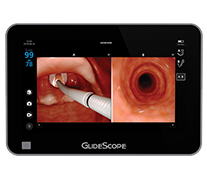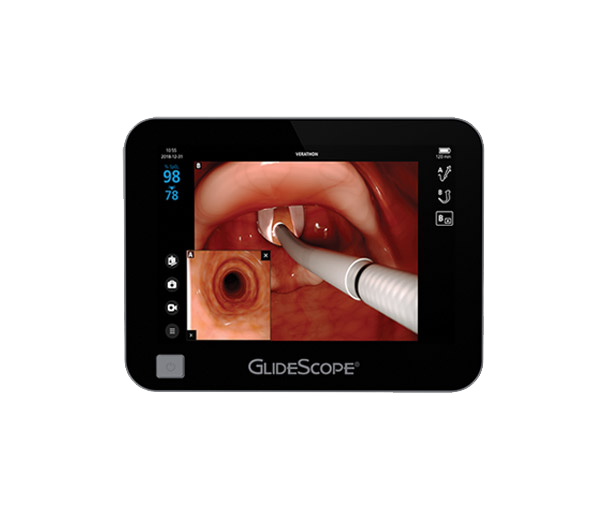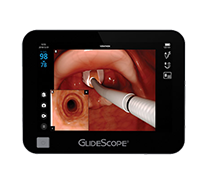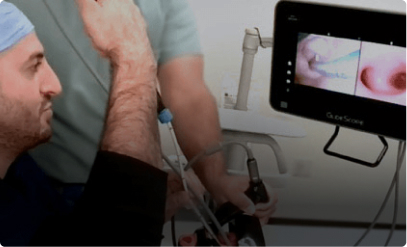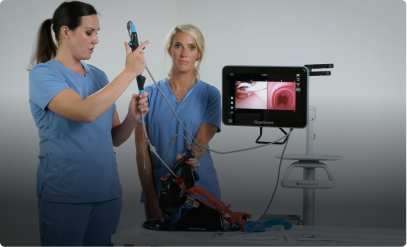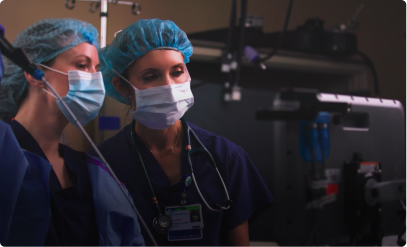See More. Do More.
GlideScope® Core™ is an all-in-one system offering immediate access to the tools you need to visualize the airway and tracheobronchial tree. The system includes a Full HD, touchscreen monitor with advanced resolution. Combined with a comprehensive workstation, GlideScope Core delivers elevated visibility and improved workflow.
Product Tour
Having GlideScope Core has increased our provider's confidence in managing difficult airways. To take it a step further, it has encouraged us to work as a team throughout the hospital.
Sarah Pierce, Certified Registered Nurse Anesthetist, Kootenai Health
One Integrated System – Two Sizes
GlideScope Core delivers brilliant visualization, quick action for emergent situations, and streamlined workflow with your choice of a 15" or 10" Full HD touchscreen display. Both monitors are compatible with GlideScope’s broad range of video laryngoscopes and BFlex bronchoscopes for routine to difficult intubations and bronchoscopy procedures.
Bringing it All Together
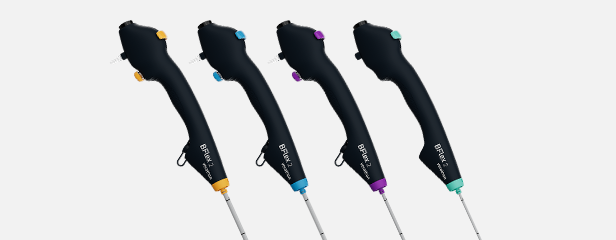
BFlex™ 2 Single-use Bronchoscopes
BFlex 2 is a single-use bronchoscope designed with powerful suction, responsive maneuverability, and improved workflow.
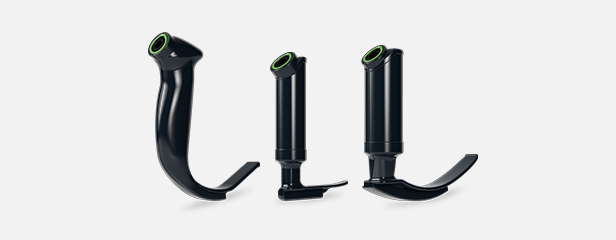
Advancing Sustainability in Single-Use Video Laryngoscopes.

GlideRite® Stylets
GlideRite Stylets are designed to complement angulated GlideScope video laryngoscopes and enable quick placement of ET Tubes.
Product Use
Helpful Information
See More with GlideScope Core Software Updates
Released in September 2024
New software updates enhance visualization for airway management and bronchoscopy procedures. Improved brightness, sharpness, and color accuracy.
Multimodal Airway Management: Combining Advanced Airway Techniques Can Be Better
Anesthesiology News, 2016
Combining two of the newer technologically innovative devices such as a video laryngoscope and a flexible fiberscope can be complementary and prove critical.
Incidence and Duration of Continuously Measured Oxygen Desaturation during Emergency Department Intubation
Ann Emerg Med, 2016
1 in 3 patients undergoing ED rapid sequence intubation experienced oxygen desaturation. Preintubation saturation less than 93%, multiple intubation attempts and prolonged intubation time are independently associated with oxygen saturation. Clinicians should use strategies to prevent oxygen desaturation during ED rapid sequence intubation.


